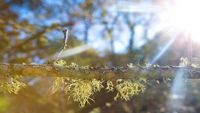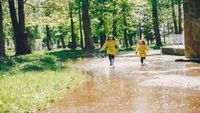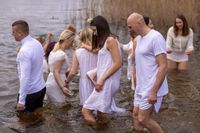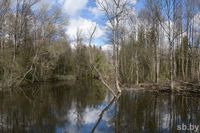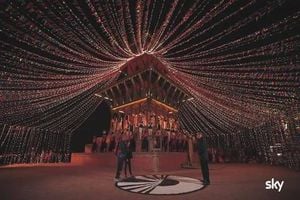As spring approaches, the charming town of Dubingiai in Lithuania is gearing up for a magical celebration that intertwines ancient traditions with modern festivities. On March 23, 2025, at noon, the Asveja Regional Park Administration will host the much-anticipated "Kupanie fey" event at Lake Asveja, marking the spring equinox. This event promises to be a vivid tapestry of Lithuanian heritage, inviting participants to sing archaic folk songs, dance around a campfire, and partake in rituals passed down from ancestors.
The event resonates with age-old beliefs that on the day of the equinox, bathing in running water can bring health and inner harmony. Lake Asveja, known historically as Alka, stands as a testament to these beliefs, revered not only for its beauty as Lithuania's longest and curviest lake but also as a place where native legends spring to life. The lake is closely linked to ancient traditions where snakes, considered to be guardians of health, are still believed to inhabit the waters.
During the "Kupanie fey" event, participants will have the opportunity to engage with the spirits of nature through various rituals that recall the worldview of their ancestors. Guests will join famous performer Laurita Peleniute, whose melodies will enrich the gathering with the sounds of history. Drumming, dancing and singing together will rekindle a sense of community and spiritual connection to the surroundings.
Literature reveals that Lithuanians once deeply honored snakes, associating them with wellness. This year’s gathering aims to awaken this part of their heritage by inviting everyone to reconnect with nature and the spirits believed to govern it. Lizards, the ancient counterparts of snakes, represent transformation and renewal, reminding attendees of the cycles of life awakened by spring. In hands with their ancestors, participants will experience this rejuvenation by immersing themselves in nature's bounty.
"Our ancestors believed that embracing the waters of Lake Asveja would bring forth not only physical health but also a revitalized spirit," said a local spokesperson. Their words echo through time as the tradition continues to unite generations.
The celebration aims to invoke the beauty of nature through dances upon the earth, barefoot runs, and invigorating swims in the rivers. Engaging fully in the experience, attendees are encouraged to revel in the beauty of spring and rejuvenate as nature awakens.
Beyond the immediate celebrations, March serves as a pivotal time in folk calendars across many Eastern European cultures. From March 24 to 30, various traditions shaped by regional customs will resonate throughout the populace. This week is dubbed "Sярднепосце," or cross days, surrounding the midweek observance when homes would be adorned with baked treats resembling crosses, reflecting resilience and worthiness in traditions past.
On March 25, the day of "Rygor," the signs of spring become manifest, as the saying goes: "On Rygor, all rivers flow into the sea." By the time the festival of Trophim (March 29), sunshine and calm weather invoke predictions for the upcoming week, where folk wisdom promises seven clear days if sunshine prevails.
The culmination of the week arrives on March 30, known as Aleksei, regarded as the day that bears the mark of spring's full onset. Fishermen in the region would often prepare for their season, mobilizing their equipment in reverence to this day of preparation.
As the community dances to the sounds of drums, sharing warmth with homemade soup and special bread traditionally baked for this time, they invite the spirits of the stork—a bird once celebrated as the guardian of family happiness and a harbinger of abundance to join them.
In the vibrant recipes of folk traditions, spring acts as a reminder of the delicate balance between nature and human celebrations. The significance of such rituals amplifies as the equinox nears, with the cycles of nature reminding all of life’s resilience and the beauty in shared communal gatherings. From the shores of Lake Asveja to every household in Dubingiai, the celebration of spring is not just a ritual; it is an invitation to experience life's sweet concatenation of joy and hope.
As we approach the equinox, weather conditions remain a topic of interest to the residents of Moscow and its surrounds. March 24, marked as Epimov Day, is traditionally a day of omen for weather prediction—if warmth graces the land, so too is summer expected to shine. Forecasts predict a pleasant warming trend after the fresh spring day of March 23, reinforcing hopes for an upcoming bright season.
As such, individuals from various communities link their fates with the changing seasons, and the merging of ancient and modern practices becomes more vital as society continues blending its past with the present. The enchantment surrounding events like "Kupanie fey" reminds every participant—both young and old—that the essence of spring is best felt together, forging memories that resonate well beyond just one festive day.
With anticipation building, all ages are encouraged to join in this unique spectacle on March 23 at 12 PM, located at 1 Radvilu St., Dubingiai, Moletai District, near the Asveja Regional Park Visitor Center. This unprecedented commingling of tradition and seasonal celebration invites all into a revitalizing experience echoing through generations, breathing life into the warmth of spring and bringing a sense of harmony and unity among nature and the community.
